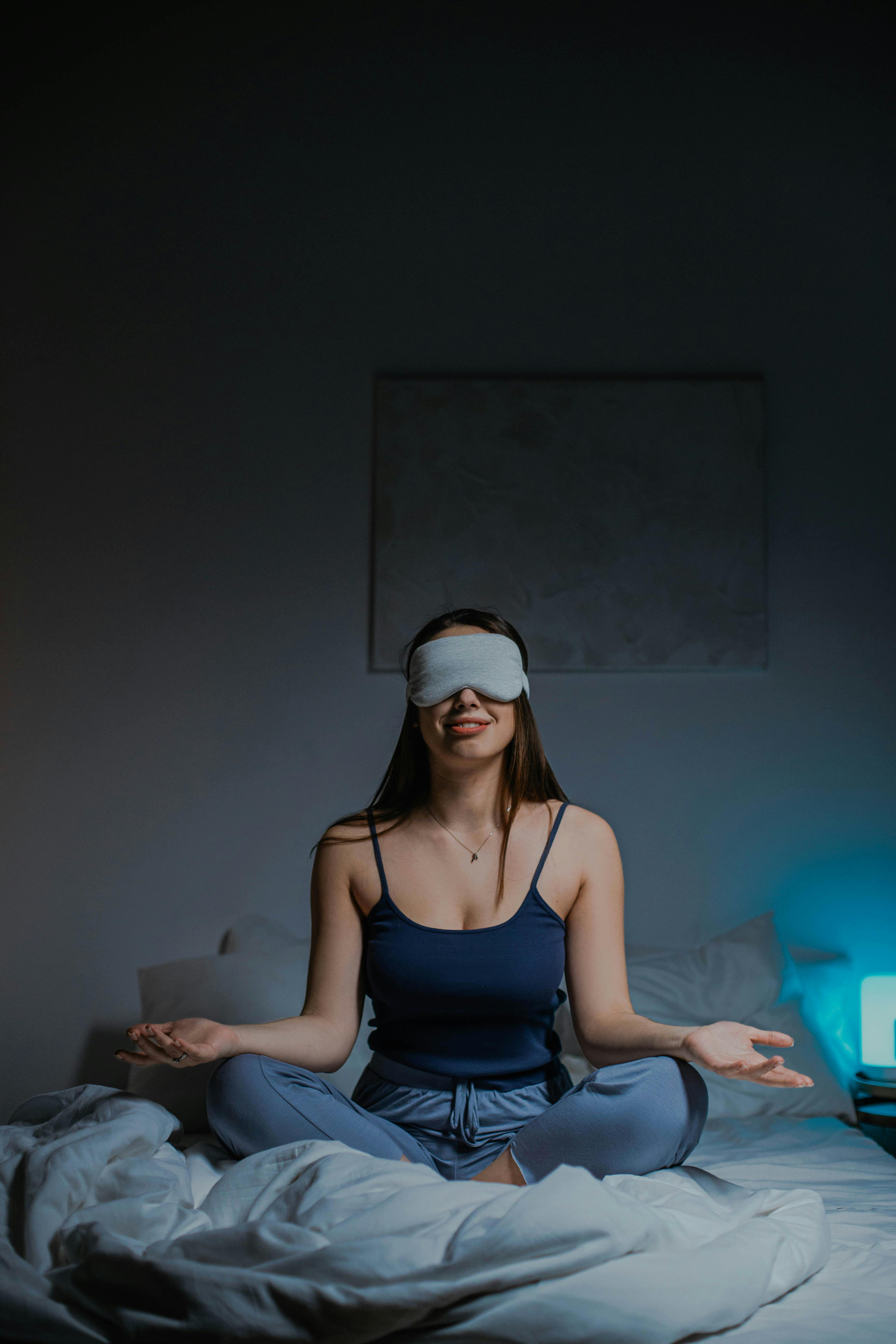
01 May A State of Total Tranquility to Improve CPAP Compliance
One of the main issues with continuous positive airway pressure (CPAP) therapy is patient compliance. Oftentimes, the need to use a mask and the feeling of constant air makes it hard for patients to adapt and consistently use it. This is why patients will sometimes find themselves more tired and struggling to sleep when they start therapy. At TSGQ, our CPAP educators try to assist patients with this process by recommending the use of desensitisation techniques. While these techniques work for a lot of patients, there will be those who find it especially hard to fall asleep even with these processes.
For some of these patients, we have found that the use of different meditation techniques improved their subjective perception of their ability to sleep. Diving into the literature, a study by Kanchibhotla et al. (2021) investigated the effects of a meditation retreat on participants’ sleep quality and duration. In this particular study, participants meditated for 30-45 minutes, 4 times a day for 4 days. They used Hollow and Empty (HEM) meditation, which is a guided meditation aiming to relax the mind. A standardised sleep questionnaire called the Pittsburgh Sleep Quality Index (PSQI), was used to measure sleep quality. Before the retreat, 43.58% of the participants had good sleep quality (PSQI score <5). However, after the retreat, 76.03% of the participants reported good sleep quality. Furthermore, the sleep duration of participants also increased after the retreat. This is only one of the studies which have observed an improved sleep quality following meditation.
The beginning of CPAP therapy can be a very challenging and daunting process for many patients. Though it is very important for the patient’s health, the initial adaptation process can unfortunately discourage many from consistently using the life-saving therapy. Integration of different meditation techniques, such as the one investigated in Kanchibthola et al.’s (2021) study, may help to alleviate this struggle.
References:
Kanchibhotla, D., Parekh, S.G., Harsora, P. et al. Improvements in Sleep Quality and Duration Following a Meditation Retreat: an Open-Trial Pilot Study. Sleep Vigilance 5, 275–280 (2021). https://doi.org/10.1007/s41782-021-00162-4

